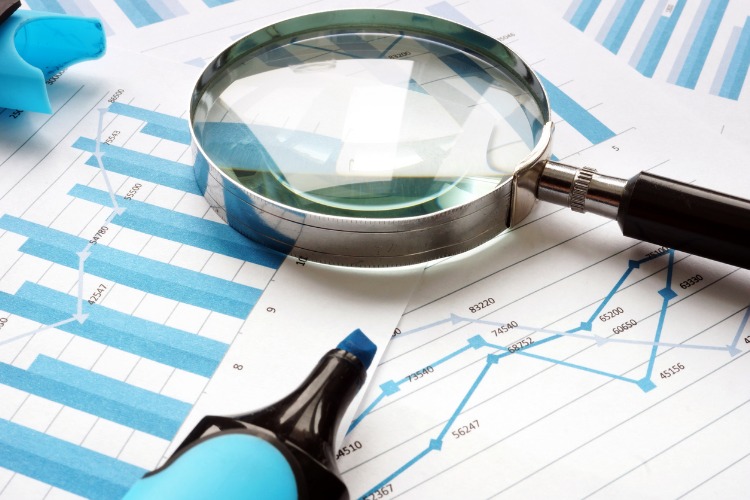Using Big Data In Auditing And Analytics
In a business environment characterized by repeated slow growth, uncertainty, and disruption, organizations face bigger challenges than ever in creating sound risk management strategies.
For many firms, analytics and auditing are crucial to maintaining an agile, profitable, and competitive framework.
Organizations that understand the sheer volume and velocity of data and how it is stored, analyzed, and secured can uncover a treasure of insights that can foster growth and enhance risk management.
What Is Big Data In Auditing?
Big data is the phenomenon of organizations having the capacity to record, measure, and capture everything digitally in real-time. Its application is influenced by fields such as fraud detection and accounting.
Organizations striving to keep pace with the constant and complicated risk management landscape have begun to revolutionize how audits are conducted. Auditors are now combining analytics and big data to identify risks and deliver quality coverage to offer more value to their organizations.
Information relevant to a company now extends beyond the conventional financial data in the general ledgers to data from social media, email, texts, among others. Leveraging big data and analytics appropriately can help a company uncover ways of optimizing cost structure, identify new channels for revenue generation, and gain insight into consumer preferences, among other endless opportunities.
Understand that big data offers a wide range of information, but without analytics, this data is not helpful. The data analyzed can be prescriptive or predictive.
Prescriptive allows a company to make sound decisions while predictive uses machine learning, data mining, and modeling to predict what may happen next. The use of the two data analysis methods can help any organization to assess risk and give priority to mitigation strategies.
Integrating Big Data Into Audits
The integration of big data begins with a combination of big data and traditional data. The traditional data is structured and quantitative and offers detailed information. Modern transactions are complex, meaning auditors need to access different types of evidence.
The introduction of big data can boost reliability, relevance, and sufficiency. However, big data faces the challenge of security in data storage. This is because big aggregate data addresses confidentiality by storing sensitive information.
When used in analytical procedures, big data due to its large volume allows an organization to perform population-based audits leaving little room for mistakes. For individual transactions, it also allows for trend and ratio analysis. Big data is also excellent at enhancing the prediction of accuracy.
It also makes fraud detection possible through the generation of nonfinancial and financial details. With it, an auditor can collect details of the EBRs of a client that may not have been captured in the accounting data.
Why Data Science Is Important To Audit Firms
With the ever-rising involvement of new technologies such as AI, Blockchain, and RPA, the need for auditors to upscale their qualifications to stay relevant in the data-driven world remains essential. With advances in data sciences, more effective audits can be performed.
Data analytics in auditing can be used to assess risk through data analysis to identify correlations, fluctuations, and patterns. The assessment can bring forth new insights to help in the improvement of analytical procedures.
Audit firms need to retain teams with the ability to analyze how automated systems are used to maintain audit quality. The risk of cybersecurity remains a top concern. This is because the integrity of audit documentation can be compromised.
Access to audit data by unauthorized persons can lead to malicious acts such as changing crucial data or deleting it. Should the malicious actors review the statement against the general ledgers, this act may not be noticed.
In the era of big data, organizations need to be careful with the technology they use in their auditing. A strong cybersecurity program can allow an organization to protect its data against fraud.
How The Era Of Big Data Will Change The Audit Profession
Since the advent of the classic audit, the cycle of auditing has largely remained unchanged. Over the next few years, however, this will change radically and transform how businesses run. Today where computerized accounting is a huge topic, paper trails have been replaced with digital records.
This means that auditors must catch up with the technological trends for more efficiency in their output. In many companies, the use of big data has become common. An auditor who lacks sufficient knowledge will struggle to identify cybersecurity issues, detect risks, or offer assurance.
Big data and analytics will transform auditing, allowing you to access the entire database and mine data. This will help auditors to focus more on concepts of interest and identify high-risk areas. With the rapid changes in the auditing field, professionals need to learn and adapt to the changing operation landscape constantly. It is crucial that you upskill your career to stay relevant.
Author Bio
Ken Lynch is an enterprise software startup veteran, who has always been fascinated about what drives workers to work and how to make work more engaging. Ken founded Reciprocity to pursue just that. He has propelled Reciprocity’s success with this mission-based goal of engaging employees with the governance, risk, and compliance goals of their company in order to create more socially minded corporate citizens. Ken earned his BS in Computer Science and ElectricalEngineering from MIT.

